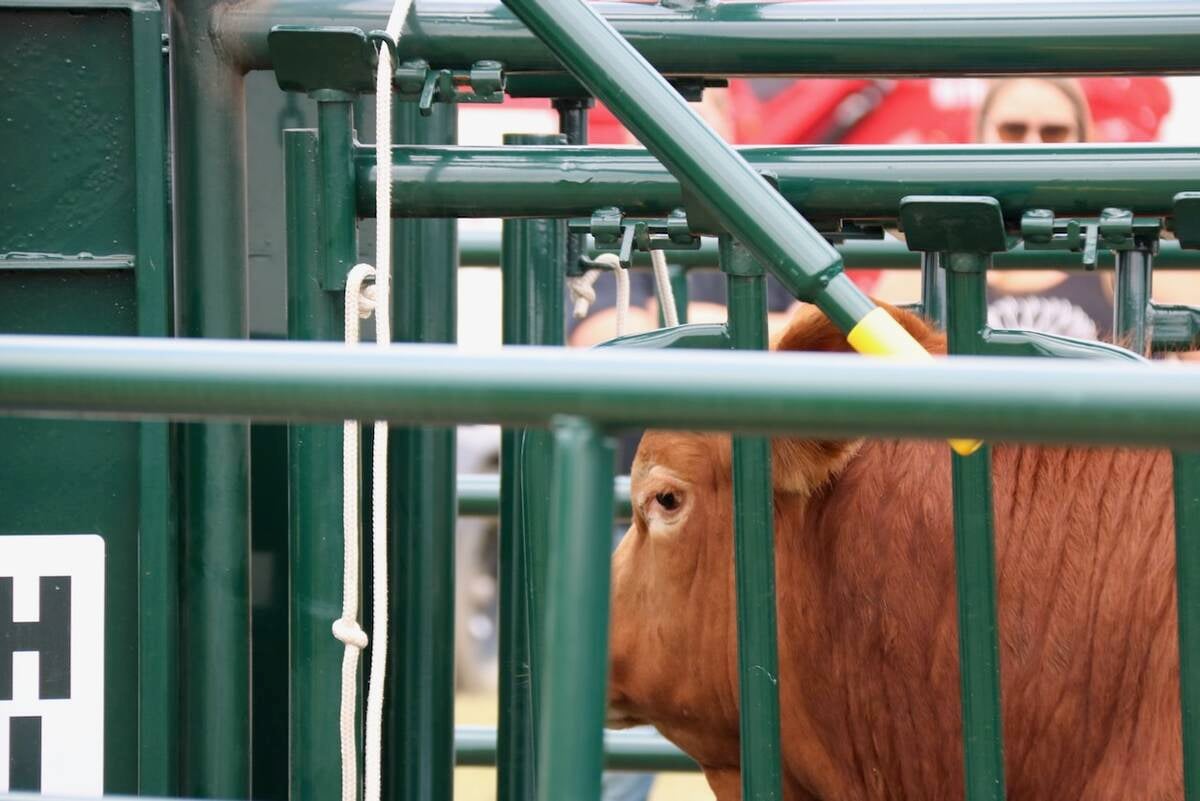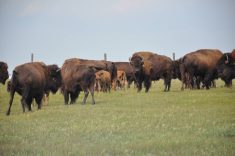Rapid City, S.D. – Standing under one of the world’s most recognized American symbols, Rikard Högberg sees the irony of a Russian businessperson seeking money and bison in South Dakota.
“It wasn’t so very long ago that this would seem too improbable,” he said as the familiar faces of Mount Rushmore loomed overhead.
“Telling about it might have even been considered the start of a capitalist joke.”
The former St. Petersburg business magazine publisher turned bison producer and marketer said despite the irony, he believes he has a business model that will make bison profitable in Russia.
Read Also

Good handling equipment a must on cattle operations
It’s important for the safety of producers and everyone else dealing with their stock that handling equipment is functional and safe.
“What is ironic is that buffalo meat hasn’t been very profitable (in North America) so far. In Russia it will be,” he said during the July International Bison Conference in Rapid City.
Högberg has set up a company to market meat and bison hunting opportunities through telephone solicitation. He said the use of telemarketing is still new in Russia.
“It’s very effective and we have some incredible lists of relatively well-off clients who will pay to (hunt) bison on the farm,” he said.
“And there are many, many more people who wish to eat bison.”
The ranch is located near the Msta River between St. Petersburg and Moscow along a historic Viking route that linked the Baltic and Black seas.
“The land was farmland, but after the fall of the Soviet government it was not farmed and it reverted to bush and became a mess. We have been restoring the pastures,” he said.
Högberg bought 46 bison from a Belgian bison breeder and promoter and is now seeking an American or Canadian partner to help finance the acquisition of 1,150 more animals and more land.
“It is the real estate that is the investment. We need the land to support the animals. We need the right balance to support the cow and calf pairs and develop the pastures.”
Valery Kharchenko made the project possible by finding a way to introduce bison to Russia.
“Bison do not exist in Russia. At least that is what the government says. If they do not exist, you cannot have a licence to import them. They are novel and there are no safety standards to import them or eat their meat,” Kharchenko said.
“It took some work, about a year, but now bison exist in Russia.”
Högberg said he has also convinced the government to give his company the exclusive right to import bison.
“We have been granted a monopoly until Russia enters the (World Trade Organization).”
Trade experts disagree over how long it will be until Russia joins the WTO. Issues of intellectual property rights, banking, agricultural subsidies and Russian energy all must be dealt with before entry is granted and Högberg feels it may still be years away.
“We have an opportunity to be first and we feel our business model fits a growing middle class in Russia. They are seeking experiences like the ones we are offering and new foods … telemarketing is still a novel way to reach them.”
He said land prices in many parts of Russia are still low, but speculators and international agricultural investors are starting to see opportunities.
“We are looking for $2.2 million. We have the other half of the investment, but it needs to be a scale that is profitable and sustainable. We want to develop meat subscriptions where the customers will buy regularly. That doesn’t work if your supply and quality are variable.”














